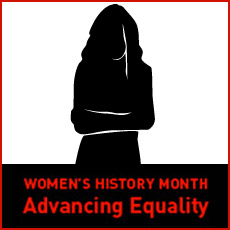
An Open Letter to the Women of the Peaceful Egyptian Revolution:
Dear Sisters:
The world watched as you began the revolution that toppled a brutal regime. Most of you are very young, and you creatively used the tools of modern communication to find solidarity around the world, to link yourselves to the tens of thousands of us who fervently wished for justice through your efforts. We anxiously watched as most of you met violence with peaceful resistance. Your energy and brains, your hardiness and courage, your belief in democracy, equality and freedom shone a light the whole world saw. And on the 11th of February, the world saw pictures of you, standing in Tahrir Square where you, like your brothers, had been beaten, gassed, shot at, imprisoned, and killed — now dancing with joy. You wrote:
The revolutionary feeling here is incredible. Every day this square is full of peasants, workers, students and professionals, engineers, teachers, singers, writers and celebrities, Muslims, Christians, young, old, rich and poor.
You didn’t need to add “women and men” because we could see that for ourselves.
You joined in the hard work of beginning a new government, begun many years before you occupied the square. Work that includes the advancement of feminism, the rights and equality of the women of Egypt, rights the elder sisters among you had advanced for years. And yet, only a few weeks after the triumph of February 11, you were attacked, verbally, physically, and sexually, by some of the same men you’d stood alongside in your struggle and triumph. You were demonstrating on International Women’s Day for inclusion of women in the new Egypt — or else “where’s the democracy?” as one young woman said. Men in the Square responded with anger and contempt. Some chanted “Go wash clothes.”
I don’t have to imagine what that felt like. I can remember.
On a cold January day in 1969 I stood in a crowd of my comrades in the antiwar movement at the counter-inauguration of Richard Nixon, listening to speeches. Many of us were feeling dispirited: we’d been struggling against the war in Vietnam for years, but the assassinations and the government brutality against the peace movement brought us to this demonstration against a right-wing war president. We heard from leaders in the civil rights movement, the migrant farmworkers, the students and artists and union members and Army vets: all the various groups that made up our movement for peace and equality. But when the woman who’d been chosen to speak about feminism got up, she was booed off the stage. Men in the crowd — not all of them of course — were loudly chanting: “We just want to f*ck.”
Bill Quigley, a Professor at Loyola Law School in New Orleans and Legal Director of the Center for Constitutional Rights is a friend and a longtime activist for social and economic justice. When cynicism and despair threaten our resolve, he always tells us to take the long view. “Look at the struggle 100 years ago. Now imagine 100 years from now. That’s how you stay hopeful.”
He’s right, and you don’t need 100 years to see that. We’re nearing the end of Women’s History Month, and reading a month’s worth of blogs on women’s rights will show you that. My grandmother was 35 years old before the Constitution guaranteed her right to vote —91 years ago. Like many of my sisters on that miserable day in 1969, I made the inclusion of women’s voices a focus of every effort for social justice.
And I can look around the ACLU, where I work, and see the change. Lots of women here — lawyers, leaders, researchers, lobbyists, fundraisers — working on women’s rights and for the rights of people of color, immigrants, the LGBT community, and prisoners, working to get accountability for torture and compliance with international human rights, working to advance justice and democracy in a hundred ways. Working to protect women and children against domestic violence, to preserve and enhance reproductive freedom, to see that the demeaning threat implicit in street harassment is exposed and the behavior eliminated. Working with women in coalitions and in countries everywhere.
We’ve got plenty to do, and we got plenty of accomplishments to show for our work. That ugly chanting in Washington 42 years ago is unimaginable now.
It won’t take 100 years for you to see huge progress in Egyptian women’s rights, to see how your peaceful revolution has helped people in other countries fighting for their rights. Never forget you have the support of women all over the world. One-hundred years from now, you won’t believe the view from Tahrir Square.
We're holding a month-long blog symposium on women's rights for Women's History Month. See all the blog posts here, and learn more about women's rights: Subscribe to our newsletter, follow us on Twitter, and like us on Facebook.

